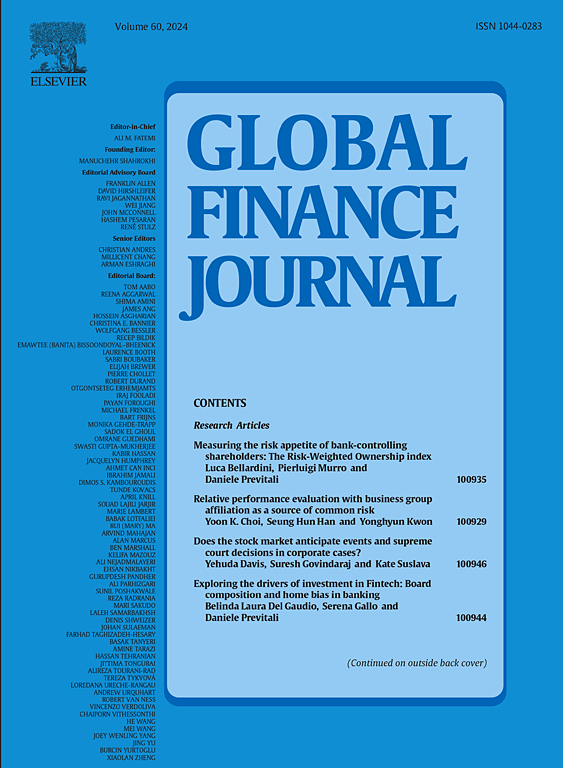Political polarization and state government bonds
IF 5.5
2区 经济学
Q1 BUSINESS, FINANCE
引用次数: 0
Abstract
This study examines the effect of political polarization in state legislatures on state bond yields in the United States. Political polarization, defined as the ideological divide between Democratic and Republican members of the state legislative chambers, reflects legislators' willingness to seek bipartisan compromises. We expect high polarization states to be riskier because they are likelier to experience gridlock, negatively affecting economic development and debt service commitment. Findings suggest a significant positive relation between bond yields and political polarization. A one-standard-deviation increase in polarization increases bond yields by 7.81 basis points and total interest expense by $2.3 million for an average bond issue. Additionally, this study finds that the effect of polarization on bond yields is stronger for general obligation bonds.
政治极化与州政府债券
本研究探讨了美国州议会中的政治两极化对州债券收益率的影响。政治两极分化是指州立法院民主党和共和党议员之间的意识形态分歧,它反映了立法者寻求两党妥协的意愿。我们预计两极分化严重的州风险更大,因为它们更容易陷入僵局,对经济发展和偿债承诺产生负面影响。研究结果表明,债券收益率与政治极化之间存在显著的正相关关系。两极分化每增加一个标准差,债券收益率就会增加 7.81 个基点,平均发行债券的总利息支出就会增加 230 万美元。此外,本研究还发现,两极分化对债券收益率的影响对一般义务债券更为明显。
本文章由计算机程序翻译,如有差异,请以英文原文为准。
求助全文
约1分钟内获得全文
求助全文
来源期刊

Global Finance Journal
BUSINESS, FINANCE-
CiteScore
7.30
自引率
13.50%
发文量
106
审稿时长
53 days
期刊介绍:
Global Finance Journal provides a forum for the exchange of ideas and techniques among academicians and practitioners and, thereby, advances applied research in global financial management. Global Finance Journal publishes original, creative, scholarly research that integrates theory and practice and addresses a readership in both business and academia. Articles reflecting pragmatic research are sought in areas such as financial management, investment, banking and financial services, accounting, and taxation. Global Finance Journal welcomes contributions from scholars in both the business and academic community and encourages collaborative research from this broad base worldwide.
 求助内容:
求助内容: 应助结果提醒方式:
应助结果提醒方式:


